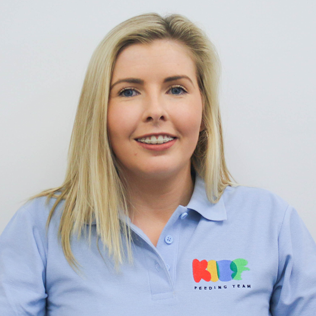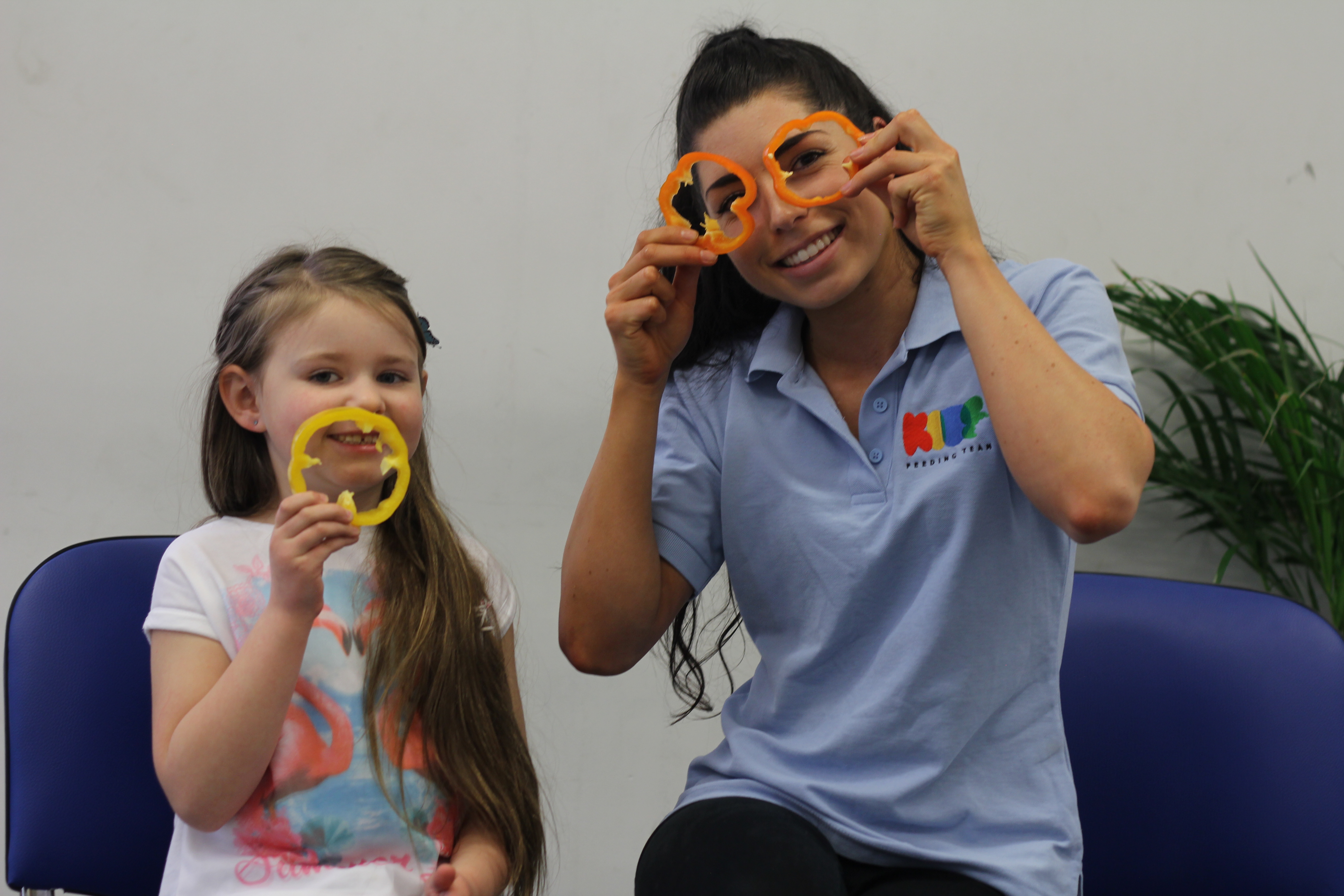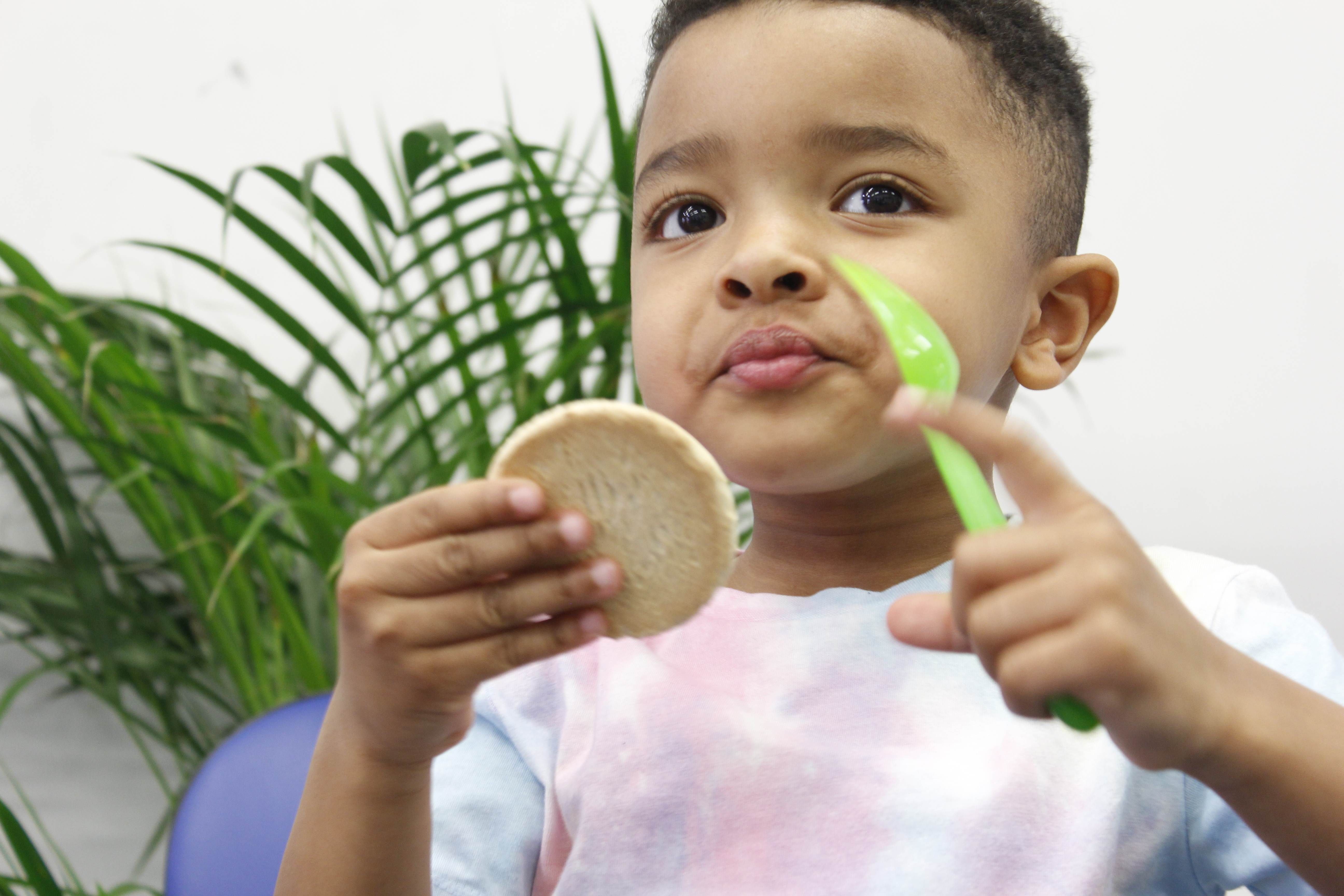Psychology is a broad spectrum that explores the science of the mind and
behaviour that exerts from it. This includes conscious and unconscious
thoughts, reactions and behaviour in children.
Child psychology, which is carried out by child psychologists, is a
multifaceted specialised discipline which translates up-to-date scientific
studies research into a therapy which can help children make sense of their
world and develop healthy coping mechanisms as they grow. A person's
childhood can be viewed as simple by many, however, it is a time in which
people are developing and learning about who they are. Children often exert
psychological trouble on controlling their eating behaviour, leading to
eating and feeding related problems.
The psychologists at The Kids Feeding Team take into account all aspects of
the child's life and will give psychological therapy according to the
journey the child has had. Eating problems are complex and our
psychologists will help to understand the route of that and develop
healthier patterns of eating for each child.
What role does a psychologist play in a multidisciplinary Kids Feeding
Team?
The psychologists at Kids Feeding Team play a vital role in helping the the
child with negative eating behaviours lead a normal healthy life. The
psychologist at The Kids Feeding Team will work as part of a
multidisciplinary team to assess your child and develop a treatment plan
which is bespoke, results focussed and evidence based throughout. Our
psychologist works alongside our dietitian, physiotherapists, occupational
therapist and speech and language therapist to assess their eating
behaviour as part of a multidisciplinary team. The psychologist will aim to
identify the route cause of the negative patterns of eating behaviour such
as fussy eating, difficulty weaning, food aversions, stress around
mealtimes and autistic spectrum disorder. Our psychologist will assess,
diagnose and treat the psychological issues which may be causing the
disordered eating behaviour which may mean focusing on a variety of
different aspects of the child's life.

Meet Niamh...
Niamh is our committed Specialist Paediatric Dietitian who has experience in both the
NHS and private sectors. She understands the complex needs of each individual child
and their family to provide patient centred care which is results-focused, evidence based
and personable.
When would a baby or child benefit from seeing a psychologist at the Kids
Feeding Team?
A child would benefit from seeing the psychologist at the kids feeding team
if they are showing any signs of problematic eating behaviour which stems
from psychological behaviour problems. Children who have long standing
fussy eating, food aversions, autistic spectrum disorders and eating
disorders would benefit from seeing our psychologist and multidisciplinary
team. Our dietitian will assess your child' nutritional intake to ensure
they are getting enough protein, energy, vitamins and nutrients whilst the
psychologist will assess, diagnose and treat the cognitive function which
may be causing the food problems in your baby or child. Fussy eating and
food aversion of some kind can be common in children, however, if it is
left to progress and develop into a long standing problem it may cause
nutritional deficiencies and faltering growth. Some

Natalia and Jade with peppers for eyes
Which common conditions can a psychologist help with?
Our psychologist can help with any feeding or eating problem which stems
from a psychological issue. Our multidisciplinary team will assess your
child and refer to the psychologists if they think it needs psychology
based treatment.
-
Fussy eating
-
Food aversion
-
Autism spectrum disorder
-
Sensory based feeding difficulties
If your concern isn't listed on here but you think we could be able to
help, let us know. For more information find out about what we treat.
What does a psychology assessment involve?
In the initial psychological assessment, the psychologist will establish a
relationship with your baby or child and explore the possible triggers and
current psychological issues which may be causing the fussy eating
behaviours and or food aversions.

Ezra with pancake and fork
The assessment will involve talking with your child and their parent or
carer and observe them perform a variety of tasks, such as feeding or
playing. Your child may also be required to fill in a questionnaire if they
are of the appropriate age to help assess their thoughts and feelings
towards eating. The psychologist will conduct a variety of assessments to
establish the root of the feeding difficulty and develop a treatment plan
to enable a healthier relationship with food. Our dietitian will work
alongside this plan to ensure your baby or child is receiving enough
nutrients energy and protein to develop adequately.
Summary
Our psychologists here at Kids Feeding Team use up-to-date evidence to
ensure your child gets the highest quality psychology care possible.
Additionally, we can offer a multidisciplinary service of health
professionals if it is appropriate for your child. Our experienced
psychologist can and improve the mental health of your child to help with
their feeding aversions ad difficulties. If you think your child would
benefit from seeing our feeding team psychologist please contact us.










